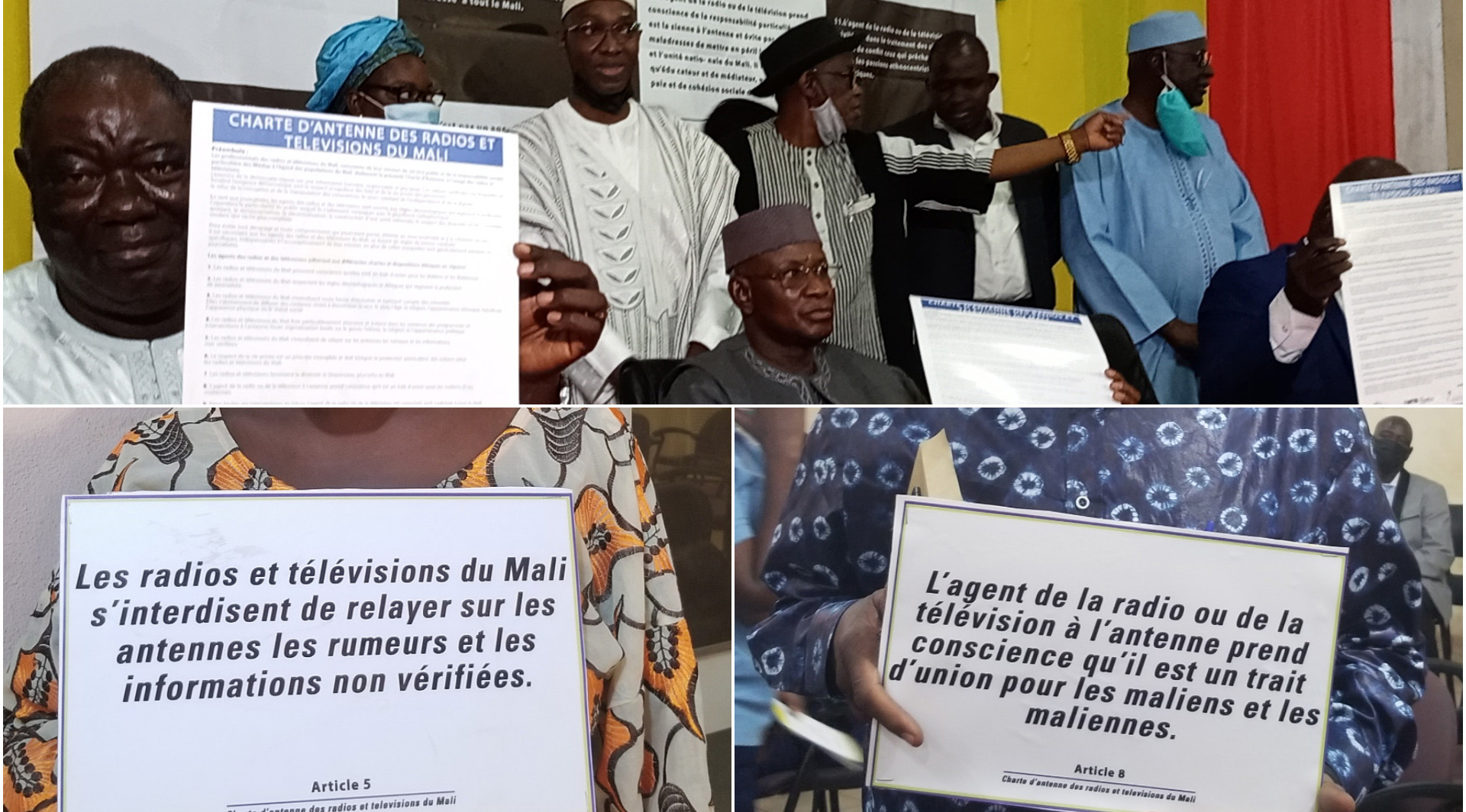The Malian media world took advantage of World Radio Day, celebrated on 13 February, to adopt a Charter for Radio and Television Stations in Mali. The document, which was drafted with the support of the Fondation Hirondelle, aims to reinforce the constructive role that the media plays in promoting social cohesion and peace in the context of the crisis affecting the Sahel region.
Media organizations are intermediaries that, when working in a professional and responsible manner, can foster communication and interaction between citizens, policymakers, and all the different groups that make up society. This, therefore, allows for a better understanding and consideration of the needs and capabilities of populations affected by conflict. By creating media spaces for inclusive dialogue representing a diverse range of perspectives, local media organizations can highlight real-life experiences and help overcome stigmatizing media portrayals. In so doing, they contribute to reducing the polarizing differences between parts of society that are divided along ethnic, religious, or political lines and function as catalysts for creating a more peaceful public space.
The charter, which was created to assist Malian media organizations in better fulfilling this constructive role while at the same time respecting their ethical and professional obligations, was signed at the Maison de la Presse in Bamako on 13 February 2021. The ceremony was presided over by Mr Fodié Touré, President of the Haute Autorité de la Communication (the High Communication Authority, or HAC) with, at his side, Bandiougou Danté, President of the Maison de la Presse and the Union des Radios et Télévisions Libres du Mali (URTEL, the Malian Union of Free Radio and Television), and Martin Faye, National Representative of the Fondation Hirondelle.
The charter was inspired by Studio Tamani, the Malian radio program created by Fondation Hirondelle in partnership with URTEL, which has broadcast news and debate programs on a daily basis through a network of 85 radio stations across the country since 2013. The preamble to the charter states that “to avoid any errors or compromise of ethics that could undermine social cohesion, it is necessary for radio and television organizations in Mali to adopt specific rules of good conduct, which are essential for the accomplishment of their mission, in addition to those to which journalists are generally bound.” It then sets out 13 articles outlining the commitments of the signatory radio and television organizations. For example, Article 10 regarding the contribution of media actors to peace states: “Radio and television organizations and the employees thereof shall be aware of their particular responsibilities while broadcasting, and undertake to eschew any errors that may jeopardize social cohesion and national unity in Mali. As educators and mediators, they shall promote a culture of peace and social cohesion in their activities.”
This Charter is designed to contribute to making radio and television stations a social link between Malians, restoring confidence within society, and being a firewall against extremism, inter-community violence, and the stigmatization of groups. During the signing ceremony, the President of the HAC stressed that “this charter is a tool that was missing from the panoply of reference sources in the allocation of frequencies and monitoring of radio stations in our country.”


